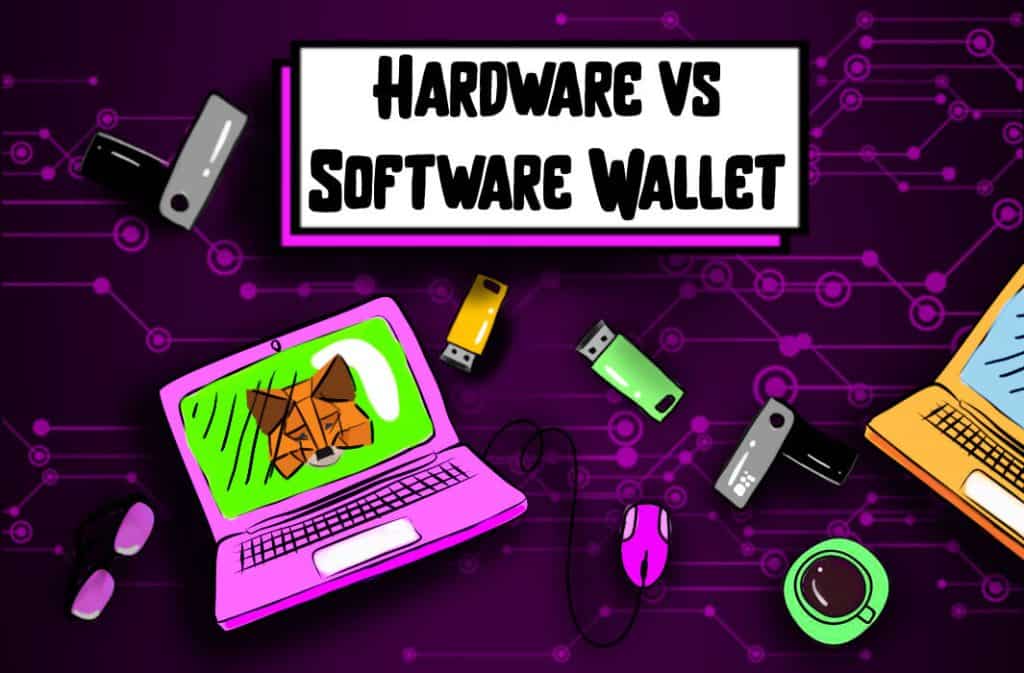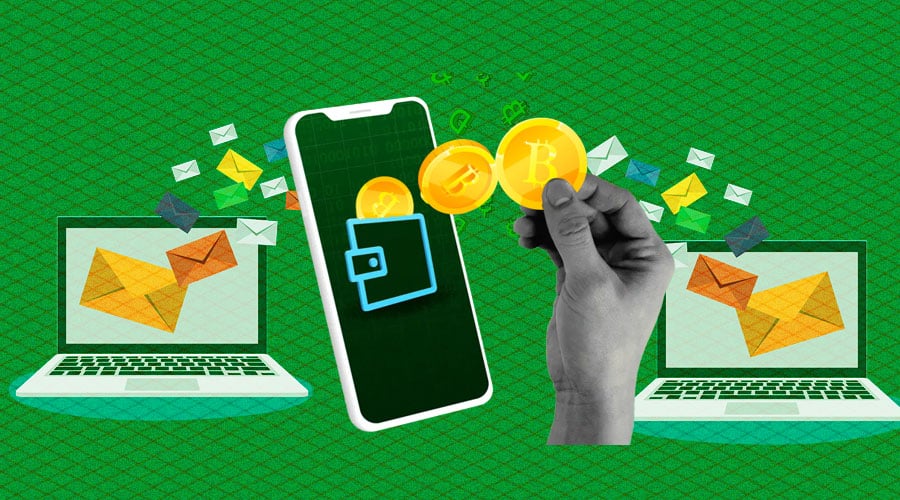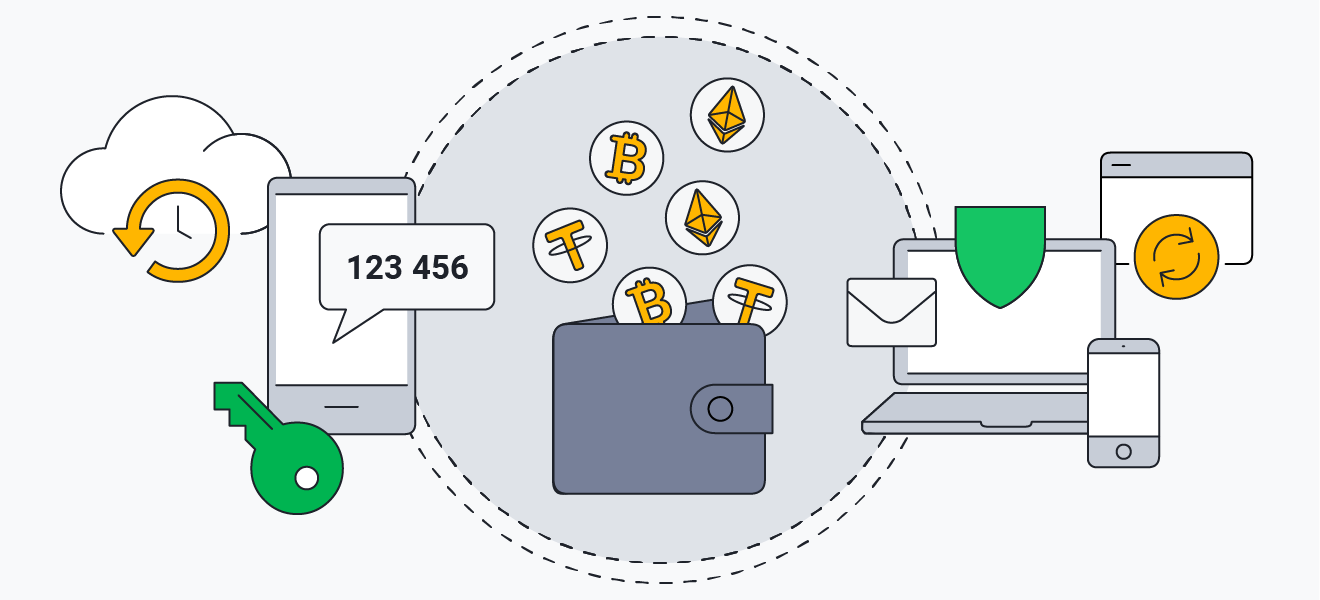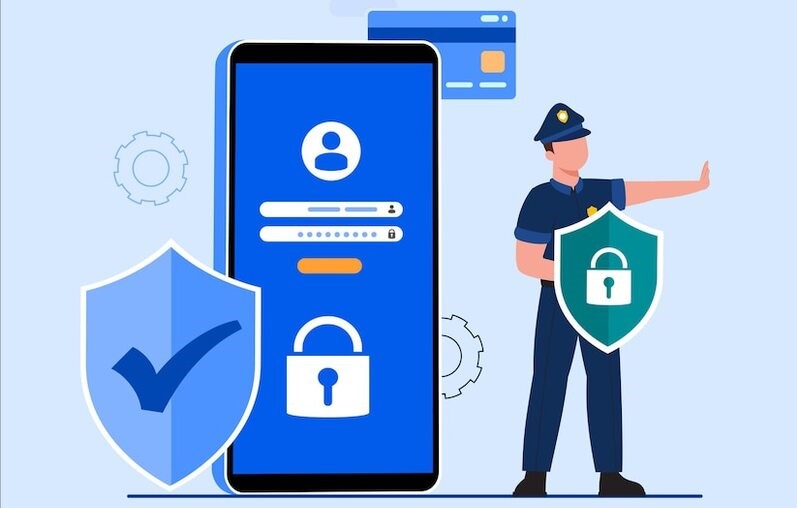Navigating the world of cryptocurrency can feel like trekking through a digital Wild West. Secure your digital gold by learning how to choose a secure crypto wallet with these 5 essential tips. This isn’t just about making a pick; it’s a safeguard for your investment. Understanding wallet types, evaluating security features, and advanced practices are your map to treasure. Stay with me, and I’ll steer you clear of the tumbleweeds and straight to the bank vault of crypto security.
Understanding the Types of Crypto Wallets
Differentiating Between Hot Wallets and Cold Wallets
When you’re trying to choose a secure crypto wallet, you need to know about hot and cold wallets. Hot wallets connect to the internet. This means you can get to your coins quickly. But since they are online, they can be at risk. Think of it like carrying cash in your pocket. It’s easy to spend, but you might lose it.
Cold wallets, on the other hand, are not connected to the internet. They are like safes for your digital money. You can’t get to your coins as fast as you can with a hot wallet, but they are a lot safer. They keep your coins offline, away from hackers.
Hardware vs. Software Wallets: Pros and Cons
Let’s talk about hardware and software wallets. Hardware wallets are like cold wallets. They are physical devices that store your private keys offline. They’re good because they are tough for hackers to break into. You can carry them with you, like a keyring. But they can cost money, and if you lose them, recovering your coins can be hard.

Software wallets, or hot wallets, are apps on your devices or on the web. They are free to use and easy to access. You can move your coins around quickly with them. But, they are at risk from online threats. So, you must be careful and use good security, like strong passwords.
Both types of wallets have pros and cons. It depends on what you need. If you want safety and don’t mind paying a bit, get a hardware wallet. If you need easy access and don’t want to pay, a software wallet is good.
Think about what’s important to you. Do you need quick access or top-notch security? Maybe a mix of both? It’s smart to use both. Keep a small amount of coins in a hot wallet for spending, and the rest in a cold wallet for safekeeping.
Remember, no matter which type you choose, keep your private keys safe. Those keys open the door to your funds. So, it’s very important to make sure they are as secure as possible. Whether you pick a hot wallet or a cold wallet, hardware or software, know that taking care of your keys is the most important step.
By understanding hot wallets versus cold wallets and the differences between hardware and software options, you’re on your way to making a smart choice for your crypto wallet security. Consider what makes a crypto wallet secure for your needs and go from there. It’s all about finding the right balance between safety and convenience. Remember, the world of crypto moves fast, but taking your time to choose the right wallet could save you a lot of trouble later on.
Evaluating Security Features in Crypto Wallets
The Importance of Multifactor Authentication
Multifactor authentication is like a superhero for your crypto wallet. It makes sure that only you have the keys to your digital treasure chest. When you pick a wallet, you want one that asks for more than just a password. Why? Because passwords can fall into the wrong hands. But if a wallet also asks for a code from your phone or a fingerprint, it’s like adding a strong lock on top of another. This keeps your coins safe from bad guys.
To keep your crypto extra safe, think about a hardware wallet. These look like USB drives and keep your crypto offline, away from hackers. Remember, online wallets are handy, but they can face risks that hardware wallets don’t. If you’re about town and want to pay for something with crypto, mobile wallets are super handy. Just make sure your phone’s security is top-notch too.
Encryption and Backup Solutions for Wallet Security
Encryption is a fancy word for turning your wallet’s info into a secret code. This code is super tough to crack. When you’re looking at wallets, ask yourself, “Does this wallet turn my info into a hard puzzle for hackers?” A good wallet does just that.
Backups are your safety net. If you drop your phone in a lake or your computer says, “I quit!” you need a way to get back to your wallet. That’s why having a backup is key. Some wallets make it easy by letting you write down a secret seed phrase. This phrase is like a magic spell that brings your wallet back just by saying it, no matter what device you’re using.
When thinking about backup, paper wallets are pretty old school—but still cool. You print your keys on paper and lock them up somewhere only you know. Just be careful of fire and water—they’re paper’s enemies.
And to keep your locked-up crypto safe, remember to always pick a wallet that updates a lot. New updates mean new defenses against the latest hacker tricks. So, when you’re shopping for the best crypto wallets in 2023, look for ones that fight off the newest threats.
Picking the right wallet is a big deal. You need one that fits all your coins, works with your phone or computer, and that you can trust to keep your crypto safe. Think about these things: Do you want a wallet that’s just for you, or one where a company helps you out? How easy is it to use? What if you need to get your coins back after something goes wrong? Can you add new types of coins to it?
In the end, the security of your coins is in your hands. So, stay smart and choose a wallet that’s as tough as a superhero’s shield, keeping your investment safe and secure.
How to choose a secure crypto wallet
One of the key factors in crypto wallet security is your role in staying vigilant. By knowing the signs of common scams, you can avoid the pitfalls many novice users fall into.
Recognizing and Avoiding Common Crypto Wallet Scams
In the world of crypto, scams are common. Some tips can help you avoid them. First, guard your private keys. Never share them with anyone. These keys are your money’s lock and key. Next, research well. From wallet brands to providers, verify reputations. Remember, if a deal looks too good, it could be a trap.
Another scam to watch for is the phishing attempt. It’s when you’re led to a fake site or app. Then, your data is stolen. Double-check all URLs. Ensure you are where you think you are.
Finally, beware of Ponzi schemes. These scams promise high returns with low risk. But they rely on new users to pay old ones.
The Role of Wallet Providers in Asset Security
Now, let’s talk about wallet providers. Picking the right one is like picking a safe for your money.

First, decide on what type of storage you prefer. Do you want a hot wallet, with its ease of access but higher risk factor? Or a cold wallet, that’s safer but not as handy for quick trades?
Then, study the security features. Look for multifactor authentication and wallet encryption methods. Ask about backup and recovery plans. Research if they offer hardware wallets, considered the safest.
Another crucial point is the wallet’s code. Is it open-source? This means the code is transparent. The crypto community can sift through it for bugs or security holes. Closed-source wallets don’t have this, so trust is essential.
Consider too, if the wallet supports your preferred cryptos. If you plan for a diverse portfolio, find a wallet that can handle it.
And lastly, keep your software up to date. Updates often fix security issues and keep you safe.
Choosing a secure crypto wallet is about arming yourself with knowledge. So read up, ask around, and stay smart. Your crypto wallet is your personal bank. Treat it with the same respect and caution.
Advanced Practices for Enhanced Wallet Security
The Necessity of Regular Software Updates and Recovery Plans
Staying safe with crypto means keeping your wallet software up to date. Like fixing your bike before a big race, updates patch up security flaws. They also add new features to your wallet. Think of it as a health check for your digital money.
For hardware crypto wallets, plug them into your computer. Then, follow the steps given by the wallet’s brand to update. Mobile and desktop wallets usually update with a click in the app or software. My advice? Turn on auto-update. It keeps you safe without extra work.
Remember to also set up a strong recovery plan. If things go wrong, this plan is like a roadmap to get back your coins. Write down your recovery steps. Store them in a safe place, away from prying eyes. Tell someone you trust about it, like a co-pilot for your funds.
Best Practices for Private Keys and Seed Phrase Management
Your private key is the key to your crypto kingdom. Understanding private keys is as important as knowing your home lock’s key. Never share it. That’s like giving a stranger free access to your house. Keep it under lock and key, always encrypted.
Seed phrases are your crypto wallet’s lifeline. They’re a bunch of random words that can bring your wallet back to life. Like a magic spell, you need to say it right, so write it down correctly the first time. Never keep a digital copy that hackers could find. A paper wallet tucked away is a lot safer.
For both keys and phrases, think “two is one, and one is none.” It means, always have a backup. Multifactor authentication is your friend. It adds extra steps for someone trying to get in. Like a guard dog that doesn’t sleep.
Remember this: Scams are out there. They trick you into giving up your key details. Be on guard like a knight in shiny armor for your crypto. Trust no one who asks for your private key or seed phrase.
Last but not least, don’t just use any wallet. Choose from trusted wallet brands that value crypto wallet security as much as you do.
Staying ahead in the crypto wallet game isn’t tough. It’s about being smart, staying alert, and picking the right tools for the job. Secure what’s yours with these savvy moves and watch your digital treasure grow with peace of mind.
In this blog, we dug into crypto wallets and their security. We covered hot and cold wallets, hardware versus software options, and their good and bad points. You learned why multi-factor authentication and solid backup are key for keeping your crypto safe. We also talked about avoiding scams and the part wallet providers play in protecting your assets.
For even more security, we stressed the need for keeping your wallet’s software up to date and having a recovery plan ready. And, we can’t forget the best ways to handle private keys and seed phrases.
In short, picking the right wallet and following security steps is crucial. It’s not just about storing your crypto; it’s about being smart and safe at every step. Your peace of mind and investment are worth taking these steps seriously. Be alert, stay informed, and your crypto journey should be a smooth one. Follow Crypto Currency Bitcoin Price to update more knowledge about Crypto.
Q&A :
1. What is crucial when choosing a secure crypto wallet?
When selecting a secure crypto wallet, various factors need consideration. Assessing the security features is vital — look for wallets that use strong encryption methods to protect your keys and data. It’s also essential to understand whether it’s a hot or cold storage wallet, as cold wallets (offline wallets) generally offer more robust security. Finally, user reviews and the reputation of the wallet provider can provide insight into its reliability and performance.
2. How to evaluate a crypto wallet’s security features?
Evaluating a crypto wallet’s security involves scrutinizing its protective features. These may include two-factors authentication (2FA), multi-signature requirements, private key control, seed phrase recovery options, and advanced encryption technology. The wallet’s behavior during past hacking attempts (if any) can also be illuminating.
3. Why are user reviews and reputation important in determining the security of a crypto wallet?
User reviews can provide helpful insights into the actual performance of a crypto wallet. They typically cover a wide range of issues, including security, usability, customer service, and reliability. Reviews can highlight both positive and negative experiences, providing a well-rounded image of the product. The reputation of the crypto wallet’s provider is another key indicator of its trustworthiness and commitment to user security.
4. What is the difference between hot and cold crypto wallets in terms of security?
Hot wallets are connected to the internet, providing convenience through quick access to your cryptos. However, they pose more security threats due to the constant internet connection, making them vulnerable to hacking. Conversely, cold wallets are completely offline, significantly reducing the risk but at the expense of accessibility.
5. What are the advantages and disadvantages of hardware and software crypto wallets regarding security?
Hardware wallets are a type of cold wallet, which store your private keys on a physical device disconnected from the internet. This provides exceptional security but may cause inconvenience in terms of accessibility and cost. Software wallets, on the other hand, are typically hot wallets available on desktop or mobile platforms. While they offer the advantage of convenience and ease of use, their connection to the internet exposes them to increased security vulnerabilities.


